Last year, I set a goal to only buy secondhand for a year. Honestly, I didn’t think I could stick with it. I’ve banned myself from shopping before, but never for a year. I didn’t shop at all for the first few months of 2023. But then I started dipping my toes into the world of secondhand shopping. Seriously, I couldn’t believe how much I learned about consumption, my style, and myself after not buying anything new for a year.
I used to think that thrift shopping wasn’t as fun as buying new. I’m human, after all, and susceptible to the excitement of novelty that excites so many people. But after a year of honing my thrift shopping skills, I’ve come to love the creativity it requires. It’s a skill, and one that allows me to use my design talents and love of curation.
Are you ready to dive into the world of secondhand shopping? Read on to share the most important lessons I’ve learned from secondhand shopping and all of the fun and creative opportunities I’ve had along the way.
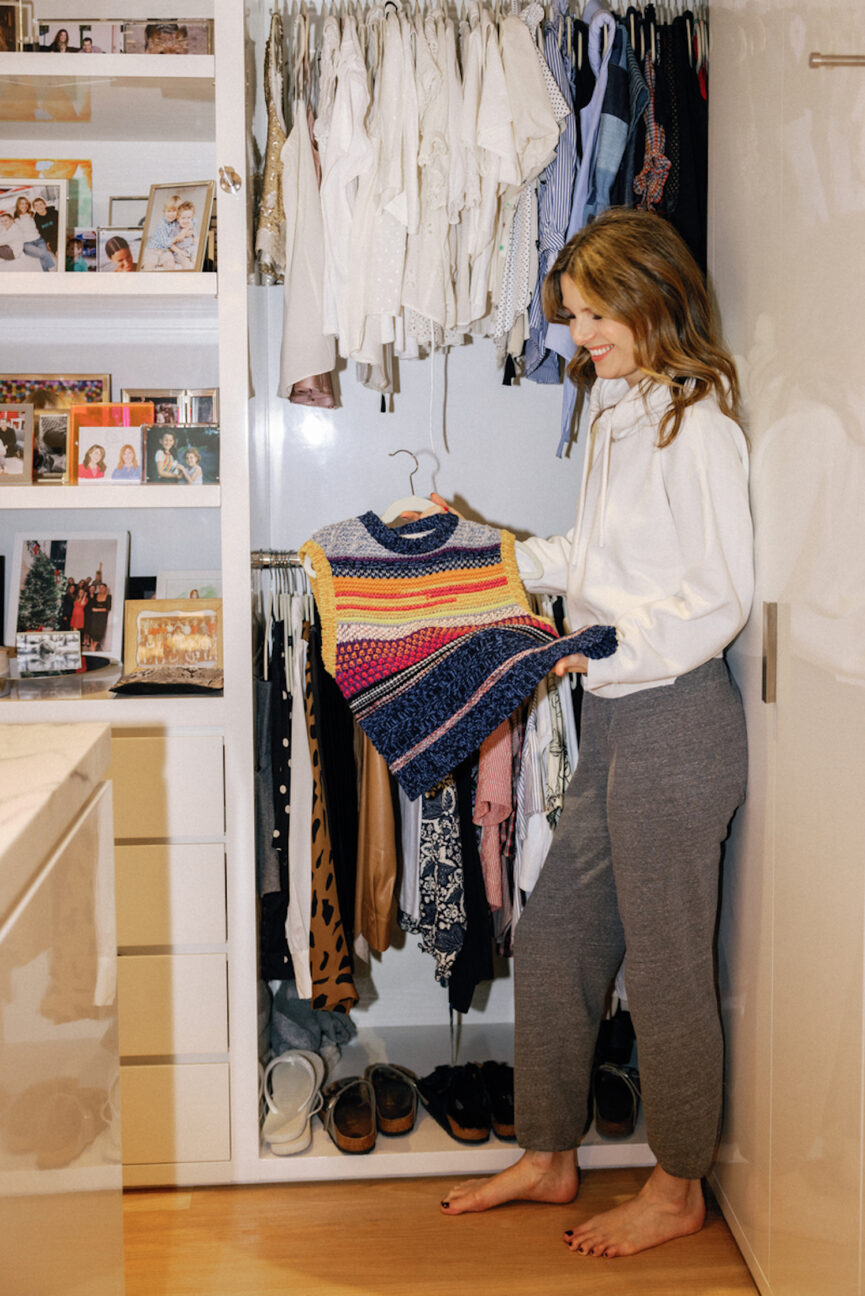
1. Most urges are temporary
Shopping has never been more accessible. With just a swipe and a click, your package will be delivered right to your door. This obsession with buying secondhand has also given me the time to pause. Whenever I have the urge to buy a new pair of boots, I first have to find them. This can take a few trips to a consignment store or scrolling through eBay. Most of the time, I find myself forgetting about it within a day or two. But then I keep searching intently, and realize it’s not just an impulse.
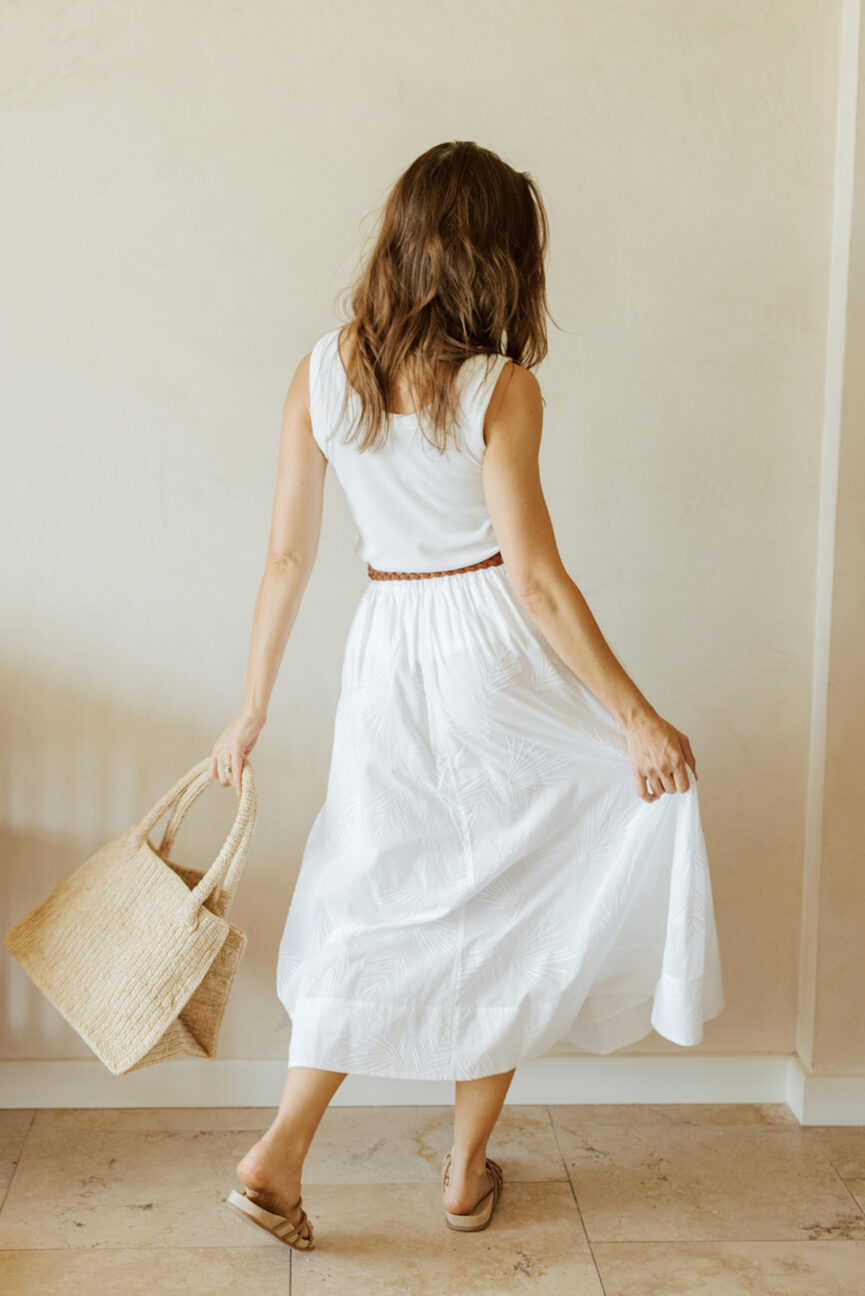
There’s a whole rabbit hole on the internet dedicated to vintage shopping. I watched the videos and read the advice and learned that it’s a muscle that develops with practice. Many avid vintage lovers stop by their local stores multiple times a week. It can be overwhelming the first time, but over time you’ll get to know the sections you want to look at, the prints and fabrics, and the types of items that are worth your time (and which ones aren’t). Eventually, you’ll be able to comb through a store pretty quickly and have an instinct for what gems are.
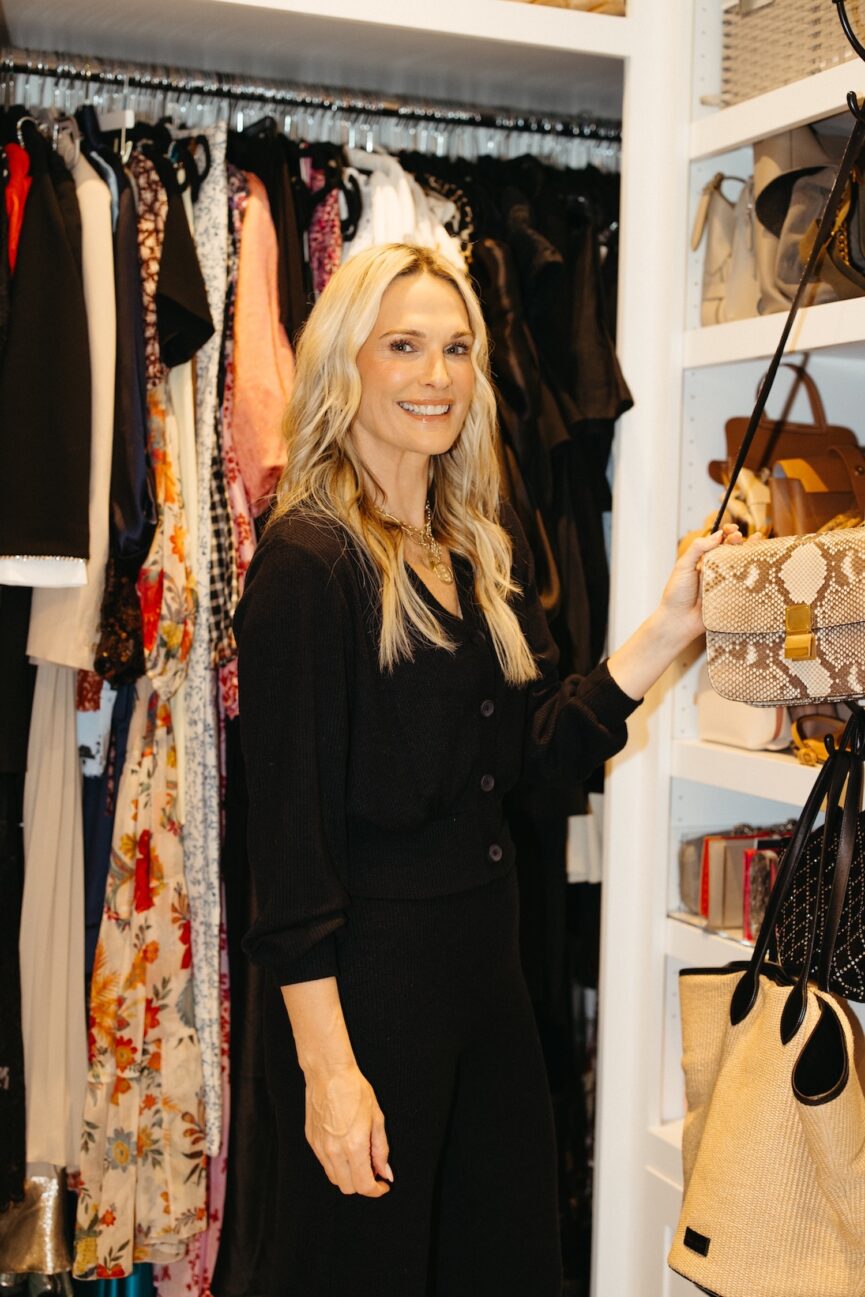
During this challenge, I discovered lots of new ways to shop secondhand, beyond the obvious thrift stores. There are apps like Poshmark and Depop that let you buy directly from sellers, eBay, Etsy, and vintage shops to follow on Instagram. There are also vintage and consignment stores, and meetups with women who want to swap used clothes.
There are so many options out there, it’s worth adding a few to your regular shopping even if you’re not as adventurous as me. The reality of modern life is that a lot of the clothes for sale have only been worn once and for a photoshoot. This is especially true for Instagram shops.
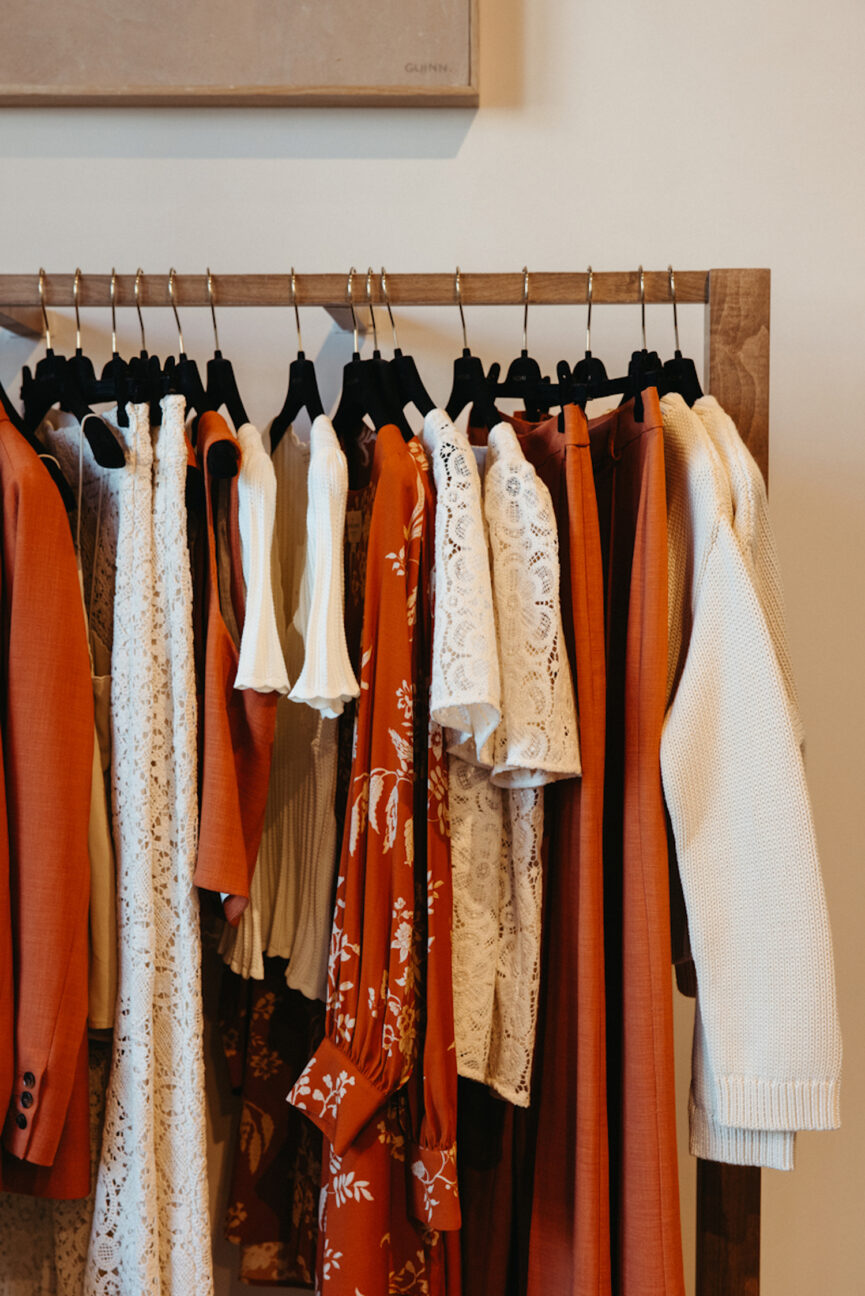
4. If something you want in a store, it’s probably already available second-hand.
Last year, I bought a bridesmaid dress brand new from a bridal boutique, but later discovered the same dress listed online, so I returned the new dress and bought it used. It turned out perfect! I learned that when I fall in love with something new, I can quickly search for that item online. Most of the time, the item was already online for sale as used. The apps and sites listed above allow you to find almost anything, designer or boutique brands. eBay also allows you to set up saved searches, so you can receive an email when someone lists the item you’re looking for, saving you time.
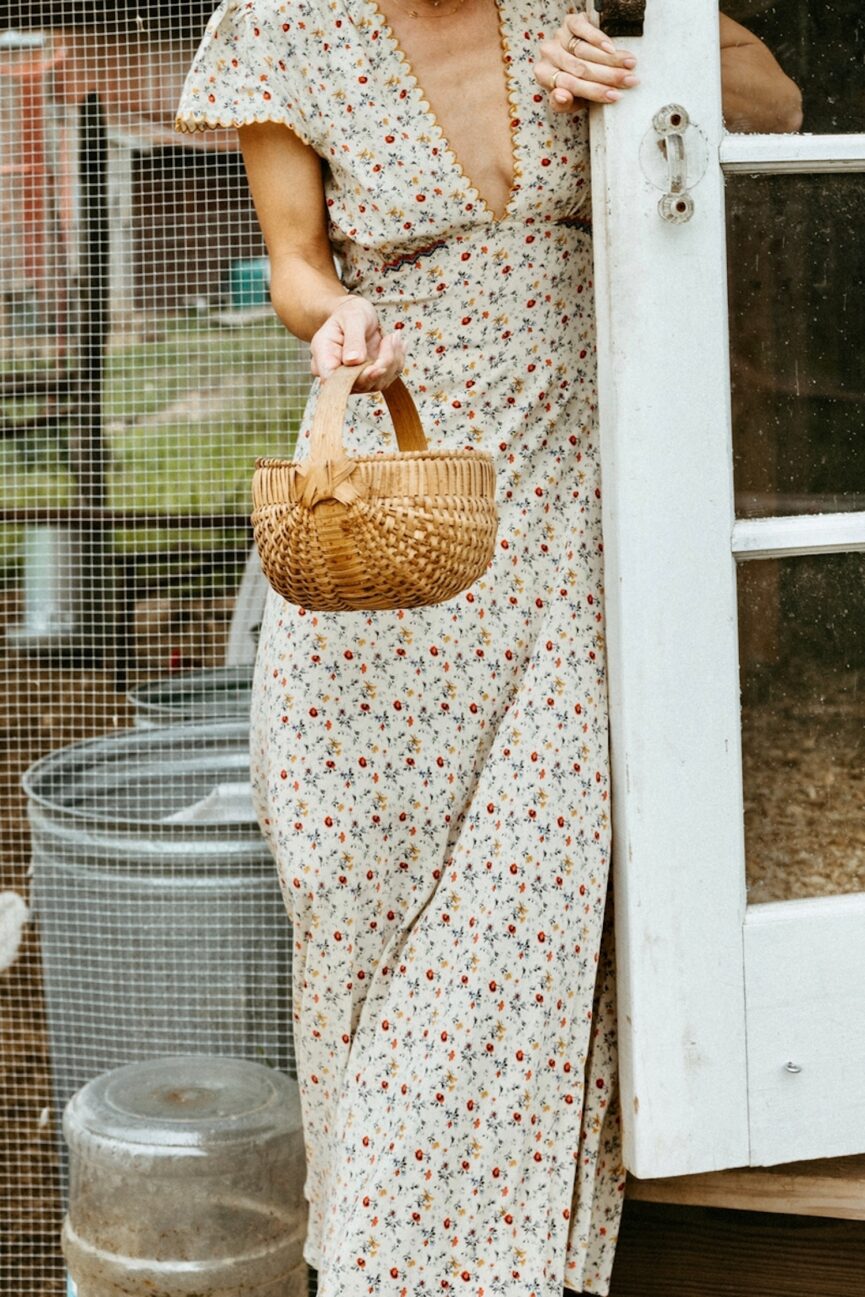
5. It fosters creativity
The overwhelming response I heard from people who practice capsule wardrobes was that they were worried they would feel limited at first. In reality, they found they created styles they loved more when they were forced to get creative. The same goes for thrift shopping. When buying new clothes, I recreate trendy outfits I see on Pinterest or Instagram, sometimes even buying the exact same outfit. When I shop thrift, I break away from default trends and think more creatively about how I want to look.
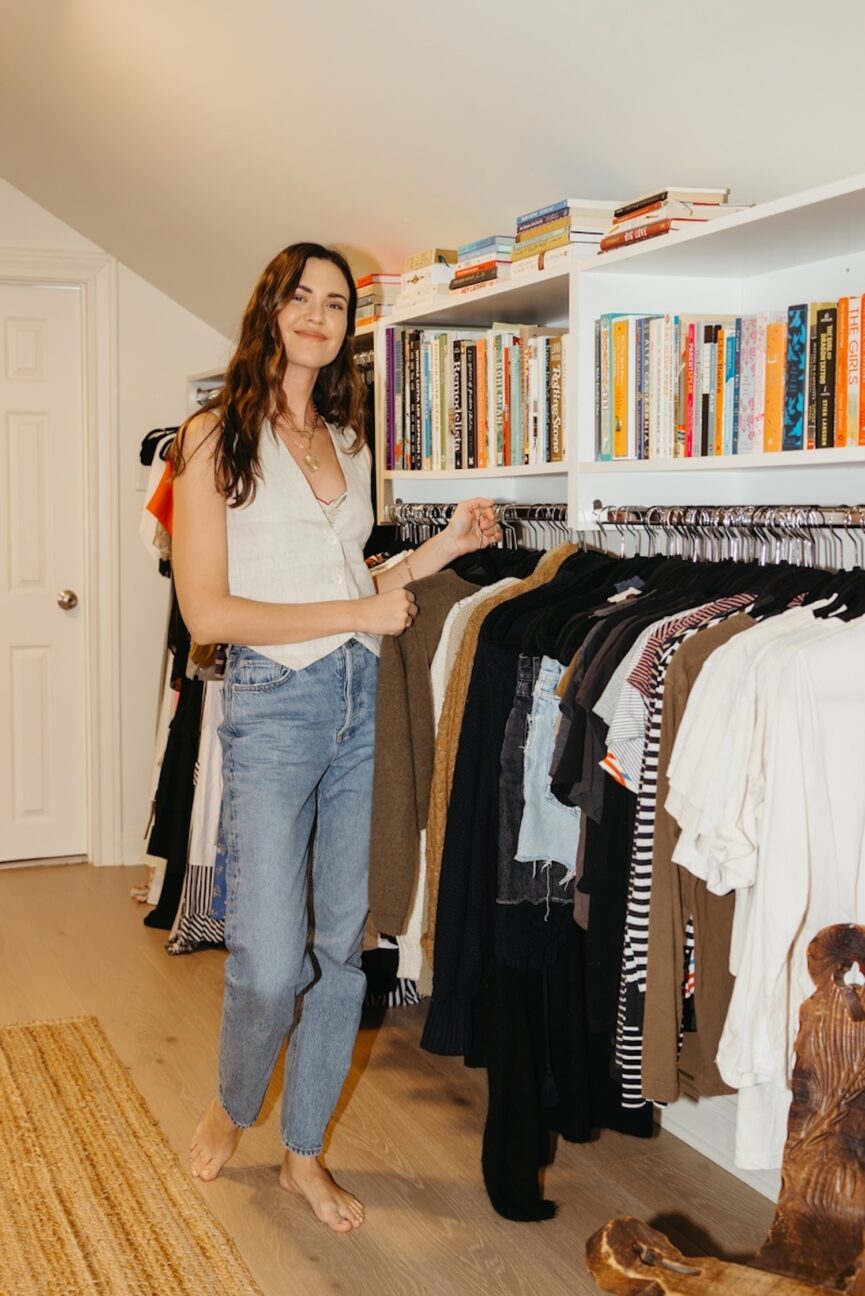
6. Trending information is easier to find
Today, most of the designs on the runways and in stores are silhouettes designed in the 70s and 90s. If you go to Goodwill today, you can actually find original 70s and 90s designs by high-end designers. (Bonus: they look a lot cooler and are cheaper!) Sure, it might take a few trips to Goodwill to find the perfect oversized blazer or culottes, but the satisfaction you’ll feel when you do find them will be much greater than clicking through an Instagram post and buying the blazer you saw someone wearing. Is that fun?










